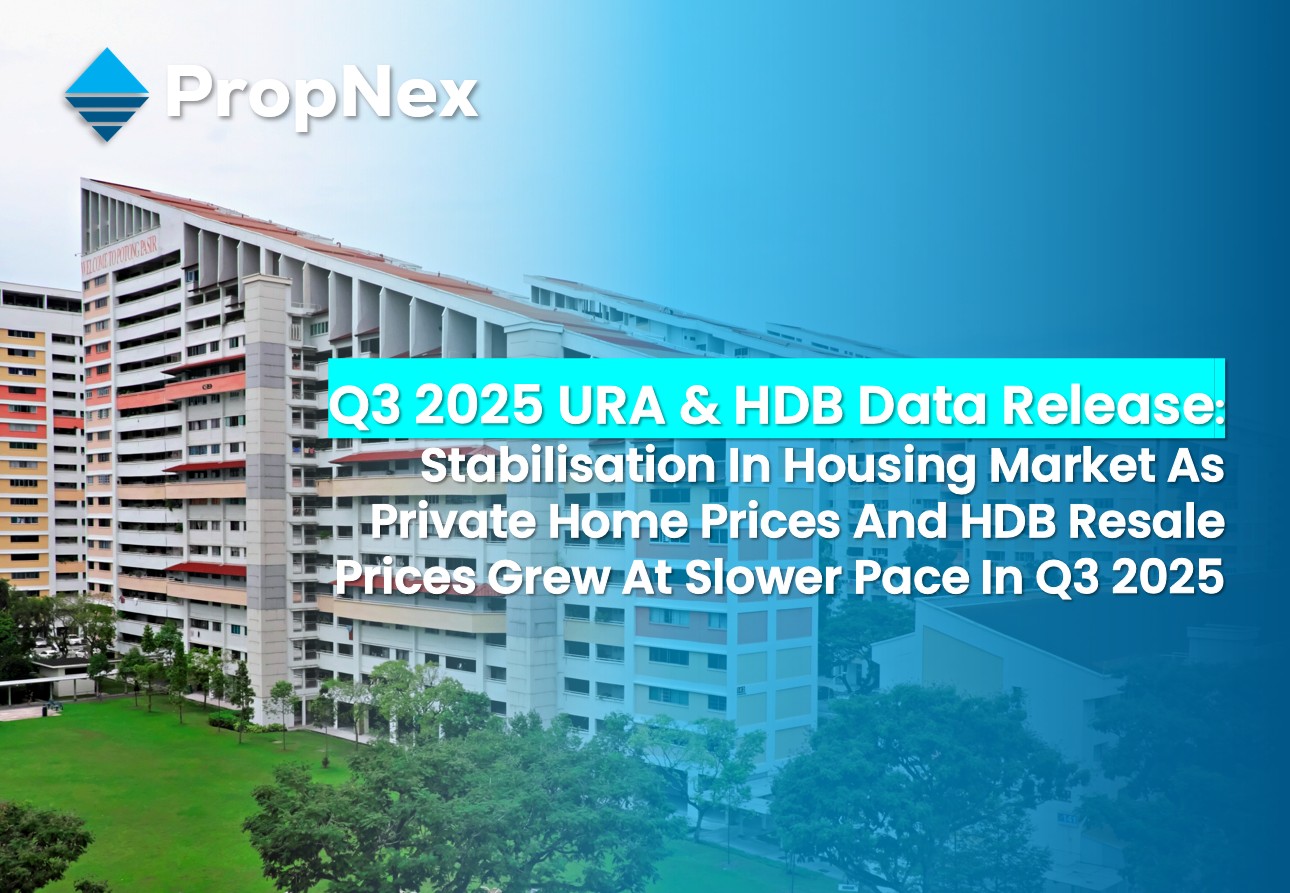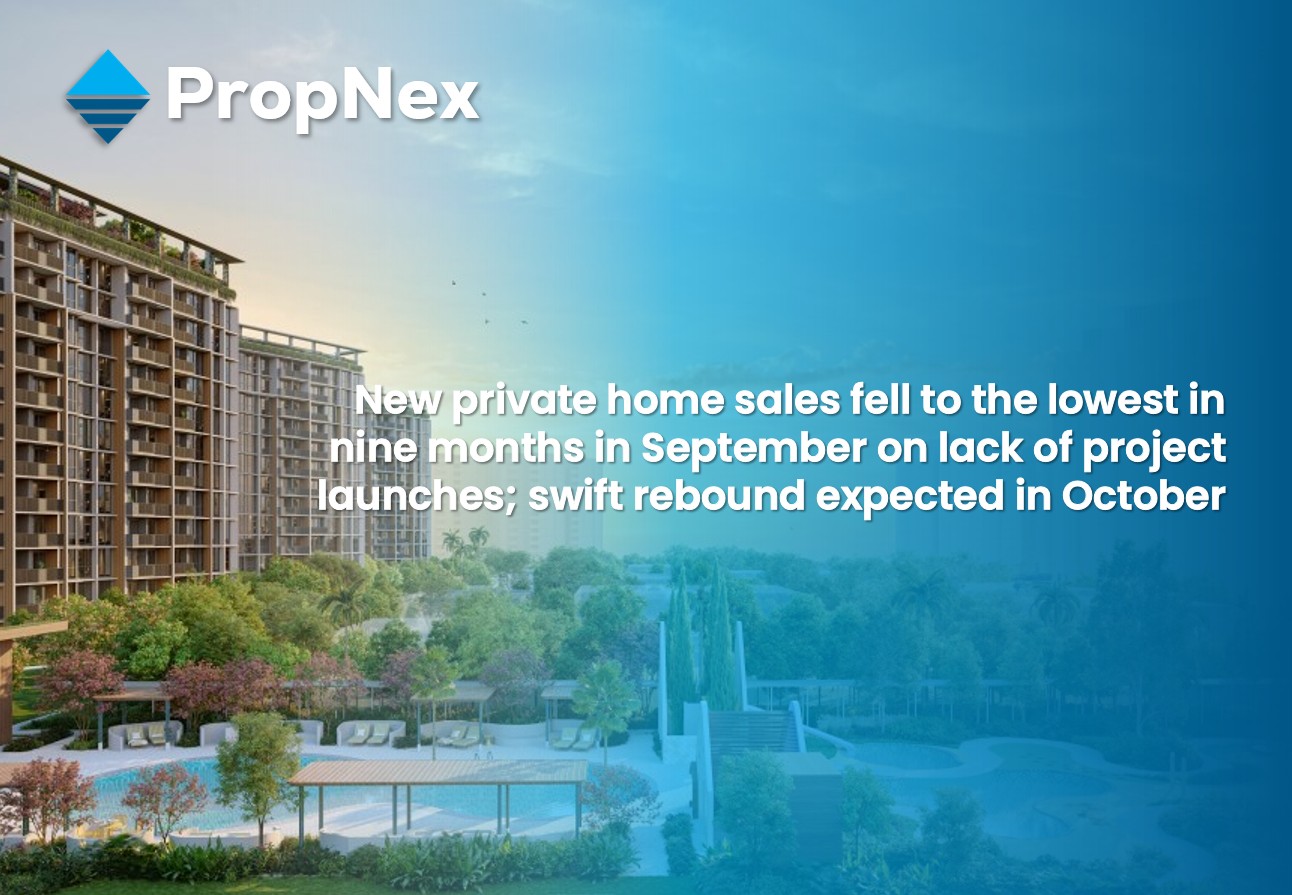Cooling Measures To Moderate Housing Demand Amid Rising Interest Rate Environment
SINGAPORE, 30 September 2022 – The government has introduced further cooling measures to moderate housing demand and to ensure home buyers borrow prudently amid rising interest rates. The package of measures announced on 29 September 2022 includes restrictions to curb loan quantum that will impact both the private residential and public housing segments. In addition, a new wait-out period of 15 months will also be introduced for private home owners and ex-private home owners to buy a non-subsidised HDB resale flat. (Refer to announcement here).
Ismail Gafoor, CEO of PropNex Realty, said, “The new measures are not unexpected and we see this as a timely and pre-emptive move to encourage more prudent borrowing among buyers for their property purchase, especially with interest rates set to climb further. The raising of the medium-term interest rate to 4% per annum from 3.5% p.a. is expected but modest, given the pace at which interest rates have climbed (the 3-Month Compounded SORA has increased by more than 1% over the past months). Still, we anticipate that this may have some knee-jerk impact on private home sales in the coming months, as would-be buyers review their sums and consider their options. The 0.5%-point increase in the medium-term interest rate may potentially weigh heavier on the sale of new executive condominiums (EC) as EC buyers are subjected to a stricter mortgage servicing ratio (MSR) of 30%, as oppose to 55% for private home buyers under the Total Debt Servicing Ratio (TDSR).”
Higher Medium-Term Interest Rate Floor to Compute TDSR – Private Residential
To illustrate, a buyer with a household income of $16,000 per month will now only be able to borrow about $1.667 million (assuming a loan tenure of 25 years, LTV of 75% and no debt obligations) using a medium-term interest rate of 4%, compared to about $1.758 million previously – resulting in a shortfall of nearly $91,000 in loan quantum (see Table 1).
Higher Medium-Term Interest Rate Floor to Compute TDSR – Executive Condos (EC)
For EC buyers, their loan quantum will differ as they are subjected to the 30% MSR. For buyers with a monthly household income of $16,000, they will be able to borrow about $909,300 under the revised medium-term interest rate of 4% – nearly $50,000 less than the previous $958,800 loan amount (see Table 2). In terms of overall property price quantum, the EC buyer will only be able to buy an EC unit that is priced at $1.212 million, compared with $1.278 million under the previous 3.5% medium-term interest rate.
The new set of cooling measures have also been calibrated to tamp down demand for HDB resale flats and rein in the strong price growth in this segment. Specifically, for loans granted by the HDB, it will introduce an interest rate floor of 3% for computing the eligible loan amount. In addition, it will tighten the Loan-to-Value (LTV) limit for housing loans to 80% from 85% (the LTV was reduced from 90% to 85% in December 2021).
Another measure will require private home owners and ex-private home owners to serve a wait-out period of 15 months after the disposal of their private properties before they are eligible to buy a non-subsidised resale flat. (The 15-month wait-out period will not apply to seniors aged 55 and above (and their spouses) who are moving from their private property to a 4-room or smaller resale flat.)
Wong Siew Ying, Head of Research and Content, PropNex Realty, said, “The measures are well-calibrated to curb exuberance in the HDB resale market, where strong demand has spurred a 12.7% price growth in 2021, and a further rise of 5.3% in the first half of 2022. In particular, we have also seen more HDB resale flats transacted for at least $1 million – about 270 such flats have been resold in the year-to-27 Sep period, already smashing last year’s record of 259 units. Observations suggest that some of the million-dollar flat buyers have sold their private home and downgraded to such flats; flushed with cash from the sale of their private property, such buyers have the ability to pay higher price for the resale flat as well as cash-over-valuation. To some extent, this will help to level the playing field for other buyers of HDB resale flats, as they may not have quite as big a war chest compared to the cash-rich downgraders who have sold their private home. We expect the 15-month wait-out period to calm demand from private home downgraders, but it could potentially boost the leasing market, as those affected may have to rent before they can purchase the HDB resale flat.”
Tighter LTV; Interest Rate Floor to Compute Eligible Loan Amount from HDB
For buyers taking HDB loans for their flat purchase, the measures will also impact the amount they can borrow. For instance, a buyer who wish to purchase a flat that is priced at $800,000 will only be able to get a loan quantum of $640,000 - $40,000 lower than before (see Table 3A). Based on a 30% MSR, the minimum monthly household income required will also fall to $10,117
However, due to the tighter LTV limit which brought down the loan quantum, the monthly loan repayment that the buyer has to service will fall. Using the new 3% interest rate floor, the monthly loan repayment will fall by $50 to $3,035 from $3,085 when computed based on an interest rate of 2.6% (Table 3B) for a flat valued at $800,000.
Mr Gafoor added, “The set of measures will affect both the upgrader and downgrader segments. Those looking to upgrade to a private home will have to rework their sums to ensure that they can make up the shortfall in loan quantum due to the 0.5%pt increase in stress test interest rate. Buyers will either have to fork out more cash or draw more on their CPF account to fund the purchase; they may also consider less centrally-located and smaller homes to keep the overall price quantum affordable. Meanwhile, those who are looking to downgrade from private property to an HDB flat may put their plans on hold or have to rent in the interim. However, we think those facing financial hardship and need to downgrade will likely appeal to the HDB.
“The fresh measures come at a time where market sentiment has turned more cautious, given the interest rate hikes and uncertain global outlook. We expect developers to monitor the sales response in the coming months and will likely keep prices stable. In the collective sale market, we think residential en bloc interest may wane as developers take time to digest the impact of these measures on housing demand.”
Suggested Reads
Upcoming Events
View moreYou may like
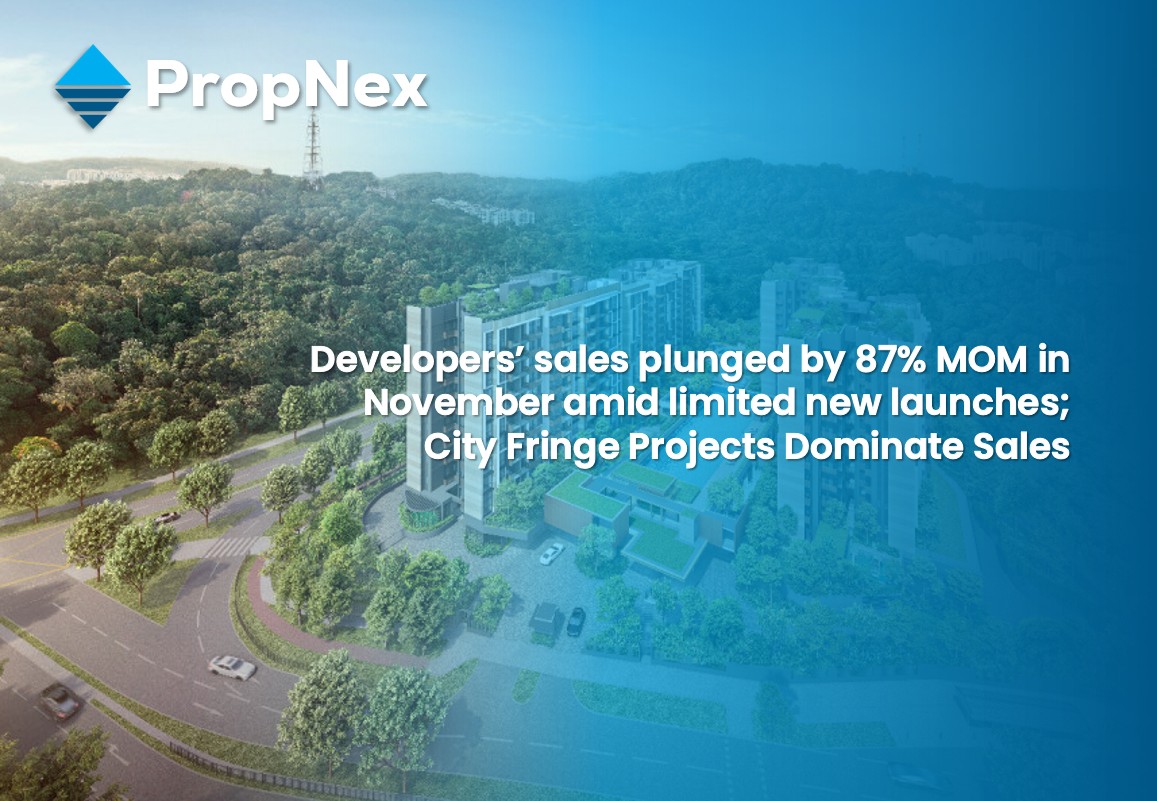
Developers' Sales Plunged By 87% MOM In November Amid Limited New Launches; City Fringe Projects Dominate Sales
December 15, 2025
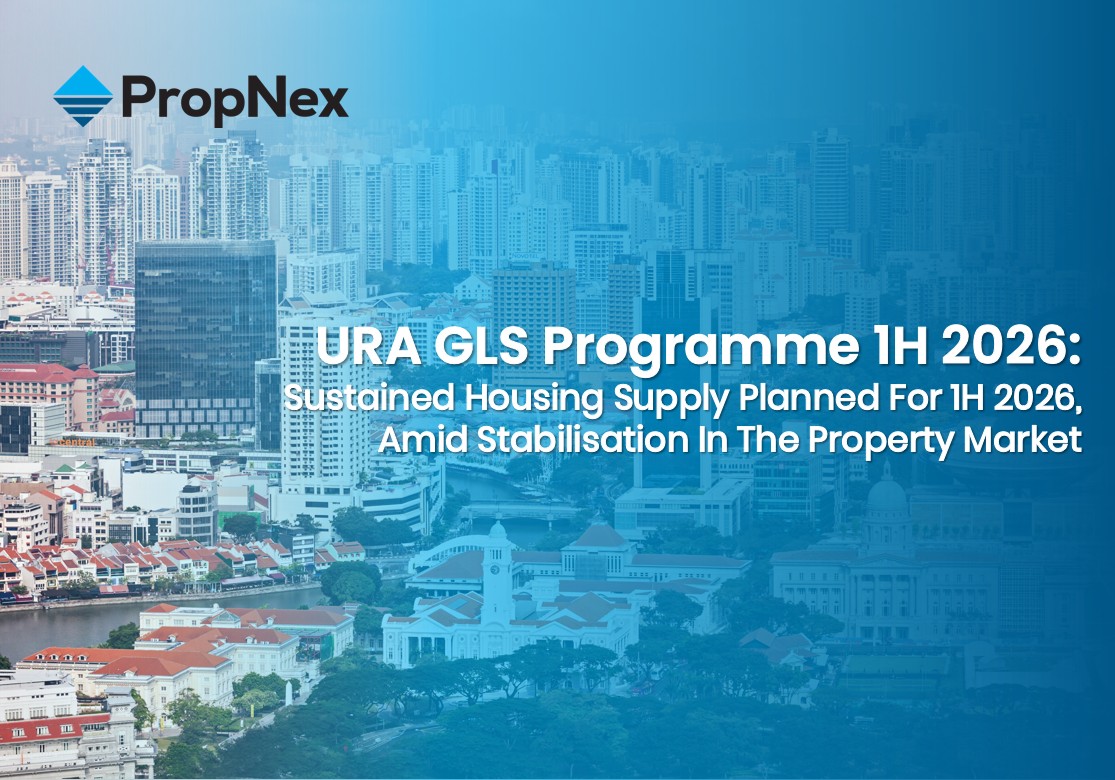
Sustained Private Housing Supply Planned For 1H 2026, Amid Stabilisation In The Property Market
December 02, 2025
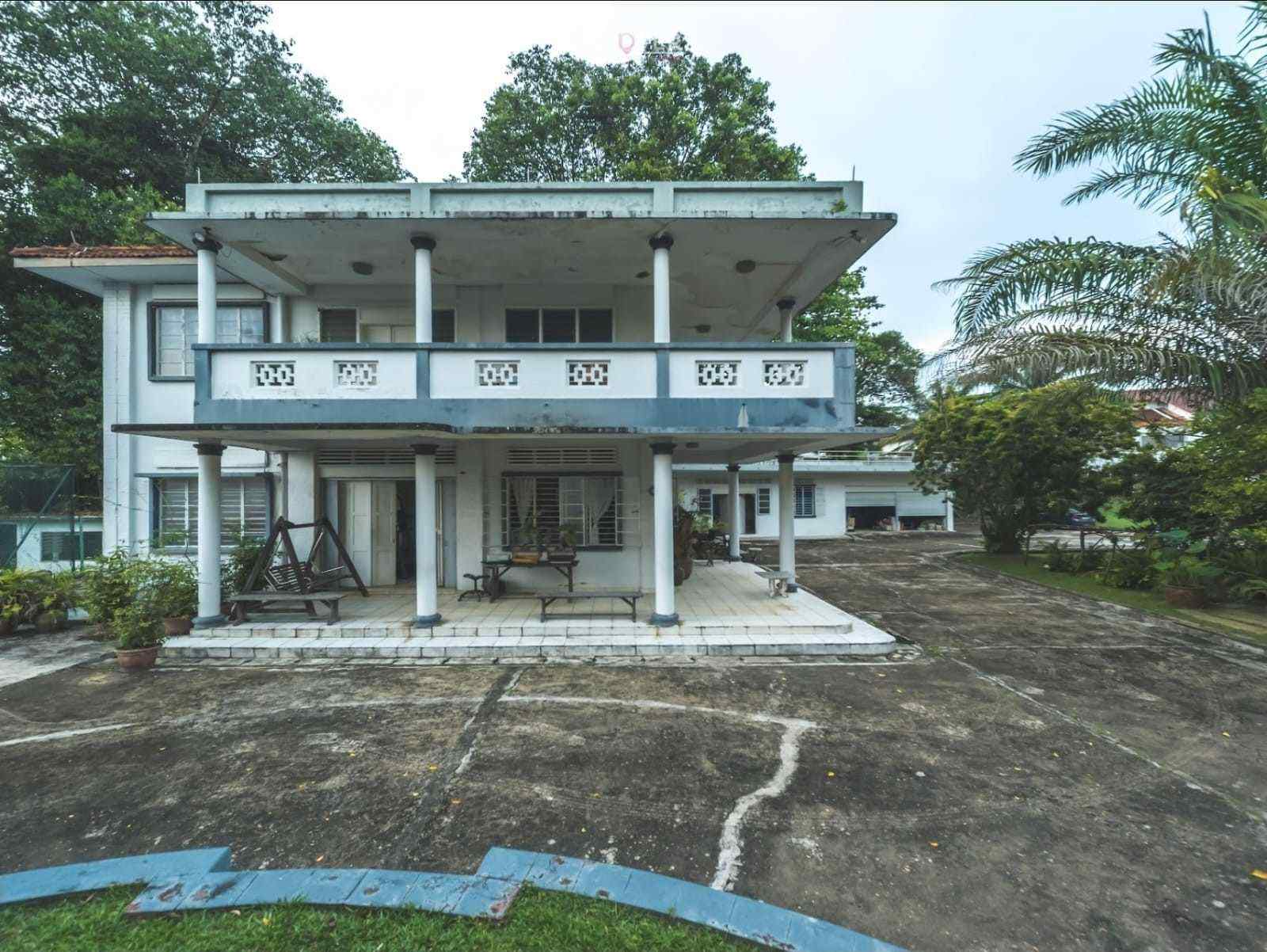
A Rare Bukit Timah Freehold Hilltop Estate Enters the Market for the First Time in 70 Years
November 21, 2025
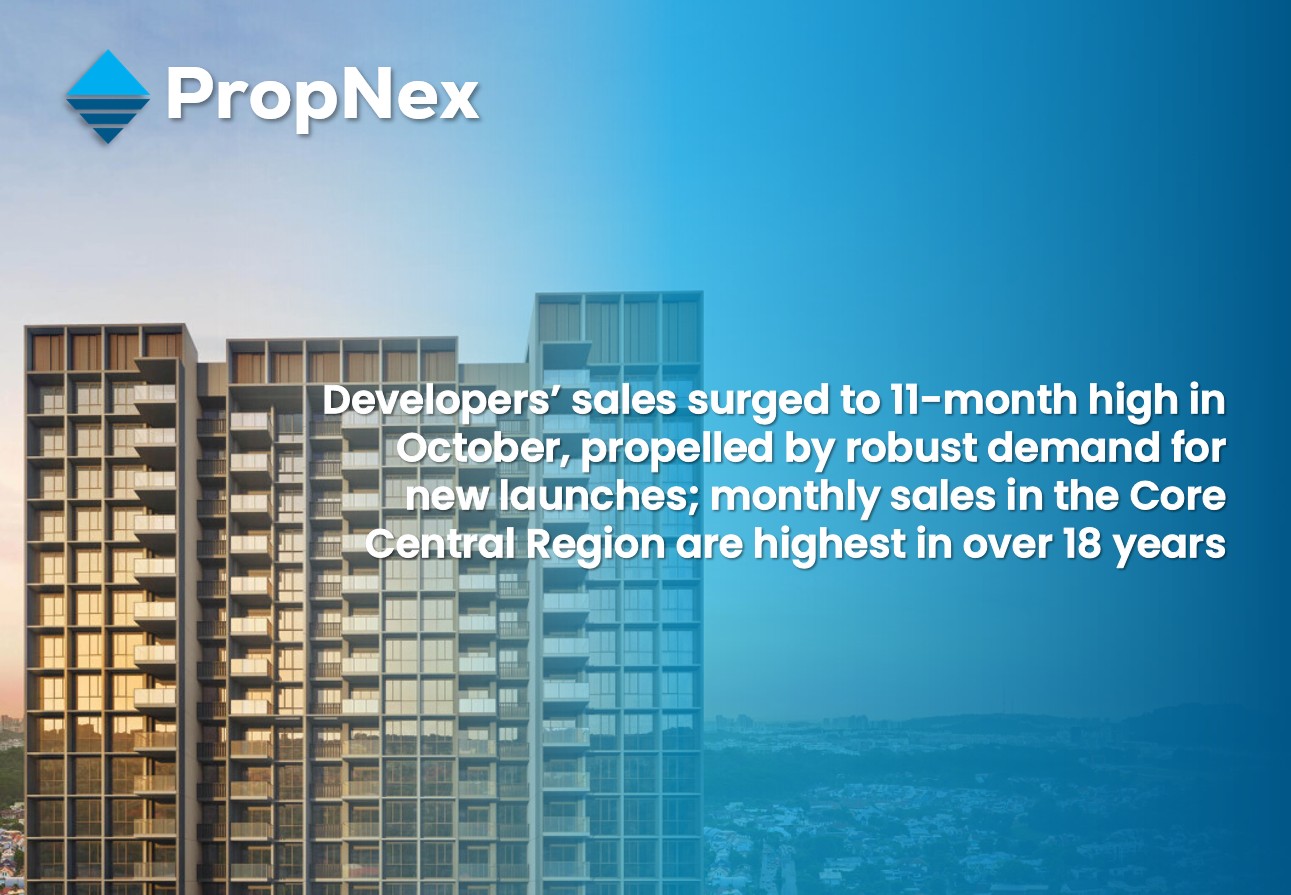
Developers' Sales Surged To 11-month High In October, Propelled By Robust Demand For New Launches; Monthly Sales In The Core Central Region Are Highest In Over 18 Years
November 17, 2025








